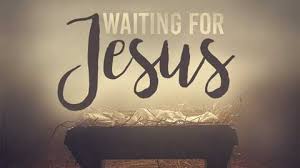
Knowing God (theology) is central to our faith and our hope of salvation. It fuels our trust during times of adversity and hardship. Our view of God provides the framework on which we as believers live our life. In knowing God we can better understand His sovereignty—His rightful position of supreme authority and power.
Seeing God through His attributes
We learn about God by understanding His attributes. Attributes are the qualities which characterize God’s nature. Some believers define these attributes into two (2) general categories: His goodness and His greatness.
Others understand God’s nature viewed through:
- His omnipotence: God is all powerful. (Ps. 66:5-7)
- His omniscience: God knows all things actual and possible. (Is. 46:9-10)
- His omnipresence: God is everywhere present. (Ps. 139:7-10)
In reading these brief samplings of God’s attributes, believers have reason to be encouraged and hopeful knowing that God is more than able to handle any of the problems we face today including health pandemics, social inequities, and racial discord.
God in Action
In the Bible we witness God’s sovereignty through His divine attributes. God’s attributes are most often seen through nature (Ps. 19:1-3) and through His relationship with man. One notable relationship was the one He established with Abram.
Abram, like Adam, would play an important role in God’s sovereign plan of salvation (Gen. 12:2). It was from Abram’s descendants that Jesus, the promised Messiah, would emerge. Through Jesus Christ, not only would Israel be blessed but the whole world would become beneficiaries of God’s divine grace (Gal. 3:6-9).
The LORD made a covenant with Abram to “give His descendants land” (Gen. 15:18). However, after ten (10) years in Canaan, Abram and his wife, Sarai had “no baby”. Sarai, thinking she was barren (and that God needed some help), persuaded Abram to take her handmaiden, Hagar, to fulfill the promise God had made to them. (Gen. 16:3).
Did God see what was happening? God not only saw what was happening but He also knew the resulting effect of Sarai’s misguided plan. God in His omnipresence and omniscience saw and knew that there would be impacts from Sarai and Abram’s scheme that would reach even into the 21st century.
The God who knows and sees
The situation that had been engineered by man (or woman, in this case Sarai) was the perfect setting for Jehovah, the God Who sees, to exercise His sovereignty in redirecting the fate of not only Abram, but also the future of an Egyptian slave girl named Hagar.
While Sarai’s plan of offering her maid to Abram to bear him a child was acceptable within the social custom of the day, there were still consequences that Sarai and Abram had not considered. More importantly, they were working outside the will of God and His plan for their life.
Is this not the case for mankind in the 21st century? God has given us instruction on how we are to live. However, many times we attempt to accomplish God’s purpose through counterfeit and fruitless efforts. We are guilty like Sarai and Abram of accepting society’s customs and values in making life decisions that often lead to disharmony and confusion.
Working outside God’s Sovereignty
After Hagar conceived, the relationship between she and Sarai began to “go south.” Hagar began to despise Sarai (Gen. 16:4, 5). Sarai began to mistreat Hagar. So Hagar fled to the desert, headed for her homeland. But the God Who sees had other plans for the runaway. It was here that the Angel of the LORD (the first reference to the Angel of the LORD in the Old Testament) began to speak to Hagar, asking two questions that would frame God’s special message for her: “Where have you come from and where are you going?”
Often the God Who sees will ask questions for which He already knows the answers. The God Who sees recognizes our unique circumstance including how we arrived at this place in our life. Whether by mistreatment or reliance on our own efforts, God is there to redirect our path to His perfect purpose.
Knowing God in His Sovereignty
Hagar would have to stay there unless she “returned and submitted” herself again to Sarai. Hagar was “strongly encouraged” by the Angel of the LORD to “put herself back under the affliction” of Sarai (v. 9).
For her obedience, she was given a promised inheritance for her son, whom the Angel of the LORD named Ishmael, “the LORD has heard your affliction”. Hagar then called the name of the LORD Who saw and spoke to her in the desert: “You-Are-the-God Who-Sees” (v. 13).
Sometimes God puts us back at “square one” in order to bless us in His unique way. It may require that we acknowledge our part or culpability in the unfortunate circumstance we’re in, even asking forgiveness for offenses we may have inflicted. Obedience to His instruction is crucial. We trust that the God Who sees always has our best interest in mind, regardless of our perception of the outcome (Jer. 29:11).
Knowing God in all His glory requires that we also know Him in His sovereignty. Because God is both good and great, we can trust our future with Him. We have no need to rely on trends and forecast when we know that God is all powerful, that He knows all things actual and possible, and that He is everywhere present. Such authority cannot be matched by anything or anyone in heaven or on earth.
The sovereign God who created heaven and earth, covenanted with Abram and Sarai, and contented for our salvation, surely sees us. God sees us—He saw us in the past (Rom. 5:6), He sees us in the present, and we can trust, He will see us in the future (Ps. 31:15). Now is the time to get to know the God who sees.










